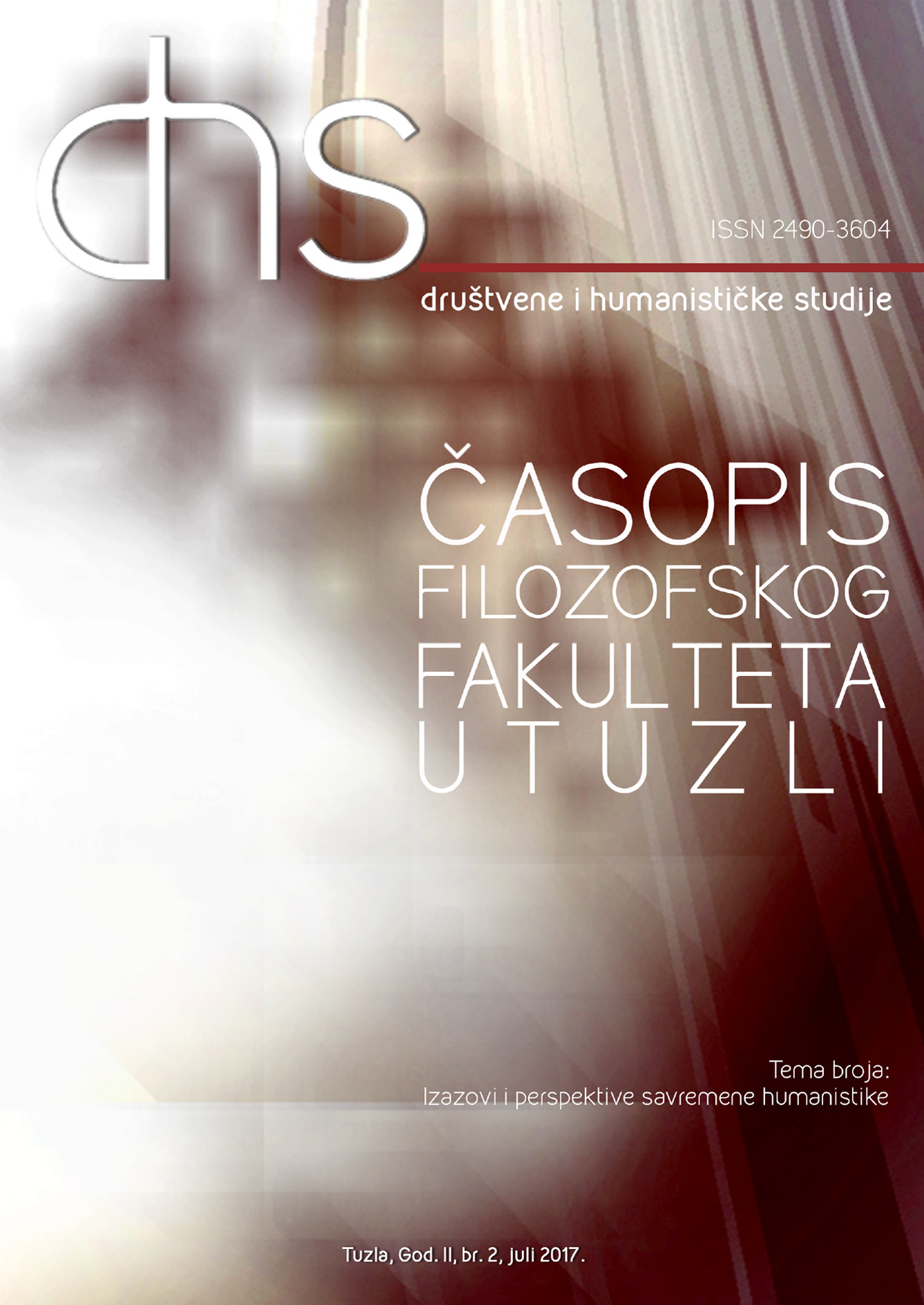Uticaj turskih serija na socijalno ponašanje mladih
Effect of Turkish Soap Operas on Social Behavior in Youth
Author(s): Hariz Šarić, Zlatan DelićSubject(s): Media studies, Sociology, Sociology of Culture
Published by: Filozofski fakultet Univerziteta u Tuzli
Keywords: Turkish series; social behavior; attitudes of students; influence of the media;
Summary/Abstract: We live in the era of a reality constructed by media. Today, the key access to media is political and commercial and even cognitive resources and social effects of the media can be both positive and negative in general. In this paper the authors analyzed and empirically investigated the complex relationship between the TV series (soap operas) and social behavior. According to Rössneru, social behavior is manifested through two modalities: socialized and disocialized. The first one contributes to the community development, harmonious relations among its members (e.g. collaboration, cooperation, friendship, selflessly helping others, etc.). These other forms break down the community and lead to conflicts, including interpersonal conflict (e.g. destructiveness, aggression, lust, addiction, neurosis, gossip, selfishness, etc.). If watching soap operas can help us significantly reduce stereotypes and prejudices towards certain countries, then the positive effects are existent.There is considerable semantic overlap but also differences between film series and soap operas. Universal definition of soap opera does not exist, while television series include a range of movies, which are usually emitted on the television at the same time, on certain days each week. Soap opera stands for the radio and television drama series type which is characterized by the absence of classic denouement, or nominally unlimited duration, that is number of episodes. A soap opera is an American term. It is the term that was created on the radio stations in the thirties of the last century, and was sponsored by the manufacturers of detergents and cosmetics. Soap opera is a pure example of the television kitsch. Its plot is banal, predictable and memorable with characters whose past is full of scandals and sensational twists. Soap operas represent a major escapist preoccupation for most of the passive and average audience, whereas for the media researchers and leisure time explorers, it is one of the major new challenges. Anthony Giddens is a British sociologist who reminded us, with good reason, of the fact that the basic observation of multiculturalism is based on assertions about the impossibility of a strict separation of different media and cultural products, and in the same time the sudden popularity and wide audience of Turkish, Mexican and Spanish soap operas and series further contributes to the intrigues of these claims. Soap opera in the cultural, anthropological and media terms do not always have only negative effects. Despite all the negative effects of passivity and commercialization of citizenry, which come with the process of neoliberal globalization, the analysis of Turkish soap operas may contribute to the cultural project of universality of elementary human values such as: love, peace, honesty, family harmony, solidarity, understanding and diversity of human experience. At the second stage of analysis, scientific research of the Turkish soap opera can contribute to the relativization of certain stereotypes such as irreconcilable differences between Western and Eastern cultural values that are promoted and imposed by the television series and soap operas, as the dominant commercial media products over the past twenty years. This is particularly evident from the analysis of the impact of Turkish soap operas and the increase of the level of their audience in the media of former Yugoslavia, except Slovenia. The general concept of diversity becomes particularly important in the former socialist countries such as Bosnia and Herzegovina, Serbia and Croatia. For instance, T. Adorno found that the industrialization of the culture promotes art forms that encourage passivity, while avant-garde art forms encourage critical thinking and resist commercialization. Ferhat Günes, a Turkish scholar states that the content of the TV series may have a significant impact on family and relationships in it. This paper will focus on the results of the research on students' attitudes towards the effects of Turkish soap operas on the social behavior in youth. The research sample consisted of a total of 3OO students from the ten faculties at the University of Tuzla - Bosnia and Herzegovina. The research results support the hypothesis about the positive impact of Turkish television series, as was declared by the 77 percent of respondents, while 23 percent of respondents said that the effect of Turkish television series on the social behavior of young people is negative. According to the results, 82.5 percent of respondents believe that the television series encourage children and young people to become violent.Based on the results of a survey we have pledged to imagology in the context of examining both the positive and negative effects of Turkish television series in youth behavior.
Journal: DHS-Društvene i humanističke studije: časopis Filozofskog fakulteta u Tuzli
- Issue Year: II/2017
- Issue No: 2
- Page Range: 231-252
- Page Count: 22
- Language: Bosnian

